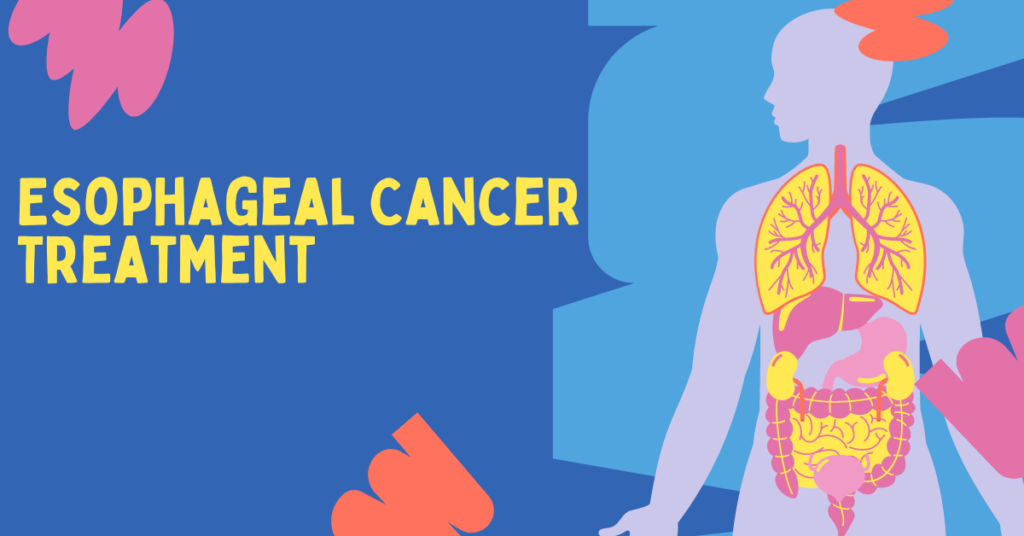Esophageal Cancer Treatment Guidelines: A Comprehensive Overview
Esophageal cancer is a malignant tumor that develops in the lining of the esophagus, the tube that connects the throat to the stomach. It is a serious and often aggressive form of cancer, requiring prompt diagnosis and appropriate treatment. In this article, we will provide an overview of the current esophageal cancer treatment guidelines, highlighting the key strategies and options available for patients.
1. Diagnosis and Staging
2. Surgery
3. Radiation Therapy
4. Chemotherapy
5. Targeted Therapy
6. Immunotherapy
7. Palliative Care
8. Clinical Trials
9. Multidisciplinary Approach
1. Diagnosis and Staging
The first step in treating esophageal cancer is an accurate diagnosis and staging. This involves a thorough physical examination, medical history review, and various diagnostic tests such as endoscopy, biopsy, imaging scans, and blood tests. Staging helps determine the extent of the cancer and guides treatment decisions.
2. Surgery
Surgery is often the primary treatment for early-stage esophageal cancer. The goal is to remove the tumor and any affected lymph nodes. The type of surgery depends on the location and size of the tumor. Surgical options include:
- Esophagectomy: Removal of a portion or the entire esophagus, followed by reconstruction using a segment of the stomach or intestine.
- Minimally Invasive Surgery: Laparoscopic or robotic-assisted techniques that offer smaller incisions, reduced blood loss, and faster recovery.
3. Radiation Therapy
Radiation therapy uses high-energy X-rays or proton beams to kill cancer cells or shrink tumors. It can be used before surgery to shrink the tumor, after surgery to destroy any remaining cancer cells, or as a palliative treatment to relieve symptoms. Radiation therapy may be delivered externally (external beam radiation) or internally (brachytherapy).
4. Chemotherapy
Chemotherapy uses drugs to kill cancer cells throughout the body. It can be administered before surgery to shrink tumors, after surgery to destroy any remaining cancer cells, or as a palliative treatment to relieve symptoms. Chemotherapy may be given alone or in combination with radiation therapy (chemoradiotherapy).
5. Targeted Therapy
Targeted therapy drugs specifically target cancer cells and their specific molecular abnormalities. These drugs work differently from chemotherapy and may be used in combination with other treatments. Targeted therapy is often recommended for advanced esophageal cancer or when other treatments have not been effective.
6. Immunotherapy
Immunotherapy helps the immune system recognize and attack cancer cells. It can be used as a standalone treatment or in combination with other therapies. Immunotherapy drugs called immune checkpoint inhibitors have shown promising results in treating advanced esophageal cancer.
7. Palliative Care
Palliative care focuses on improving the quality of life for patients with advanced esophageal cancer. It aims to manage symptoms such as pain, difficulty swallowing, and weight loss, as well as provide emotional and psychological support to patients and their families. Palliative care can be provided alongside curative treatments.
8. Clinical Trials
Clinical trials play a crucial role in advancing esophageal cancer treatment. They provide access to innovative therapies and help researchers evaluate the effectiveness and safety of new treatment approaches. Patients may consider participating in clinical trials under the guidance of their healthcare team.
9. Multidisciplinary Approach
Treating esophageal cancer often requires a multidisciplinary team approach involving medical oncologists, radiation oncologists, surgeons, gastroenterologists, radiologists, pathologists, and other healthcare professionals. This collaborative approach ensures that patients receive the most comprehensive and personalized care.
It is important to note that treatment plans may vary depending on the individual patient’s condition, overall health, stage of cancer, and other factors. The esophageal cancer treatment guidelines serve as a framework, but each patient’s treatment plan should be tailored to their specific needs.
In conclusion, esophageal cancer treatment guidelines encompass a range of options, including surgery, radiation therapy, chemotherapy, targeted therapy, immunotherapy, palliative care, and participation in clinical trials. The choice of treatment depends on various factors and should be made in consultation with a multidisciplinary team of healthcare professionals. By staying informed about the latest guidelines and advancements in esophageal cancer treatment, patients can make well-informed decisions and improve their chances of successful outcomes.

